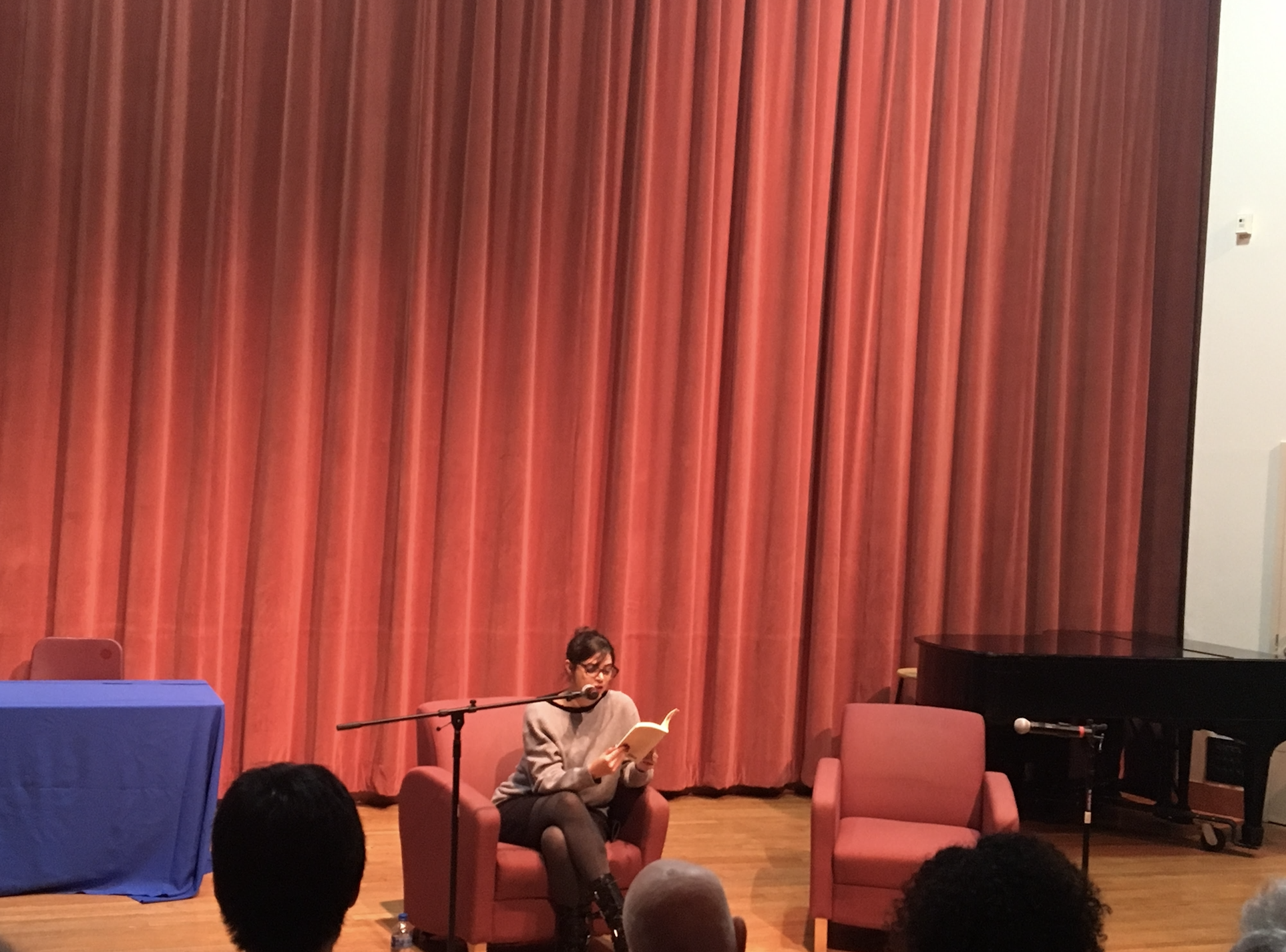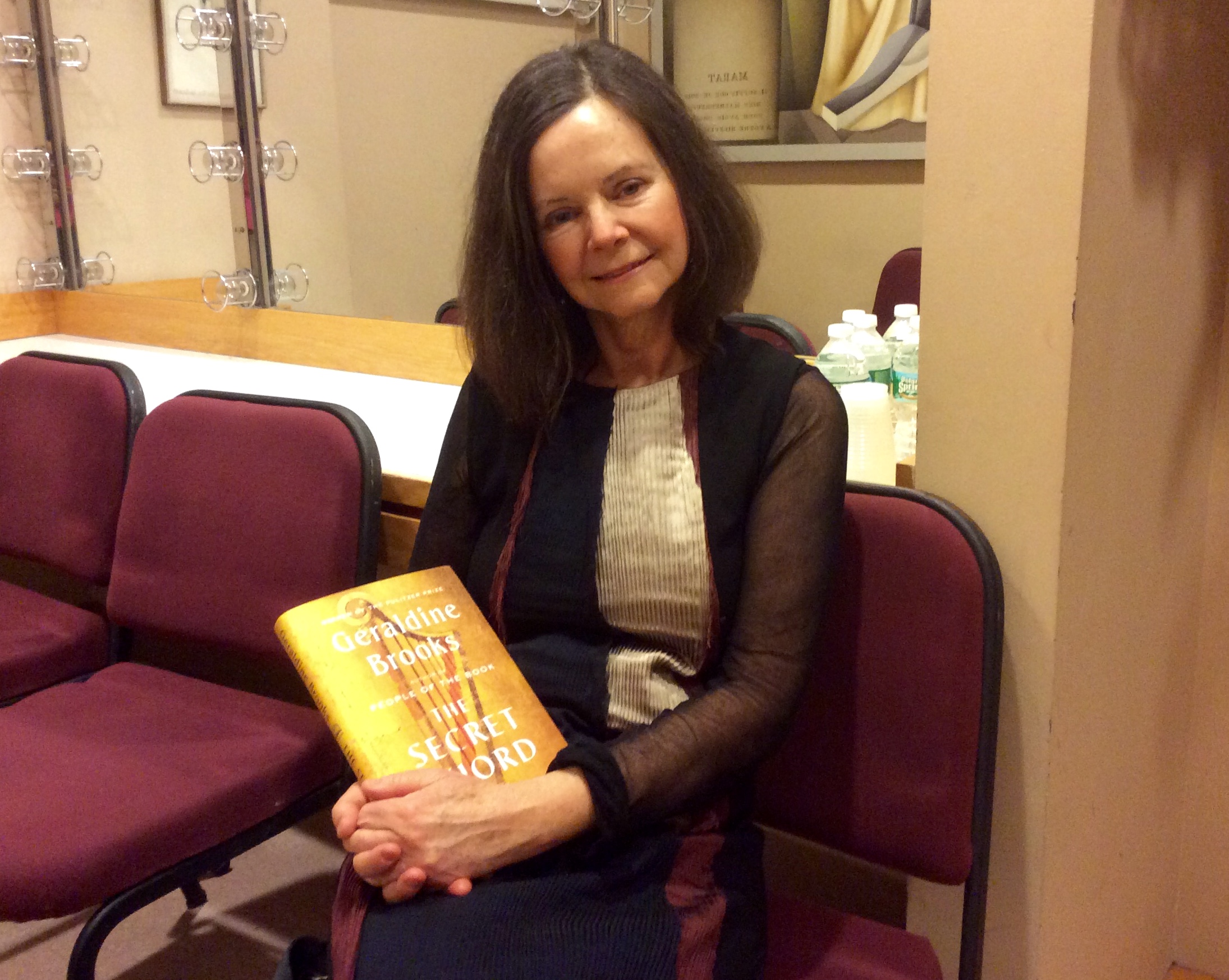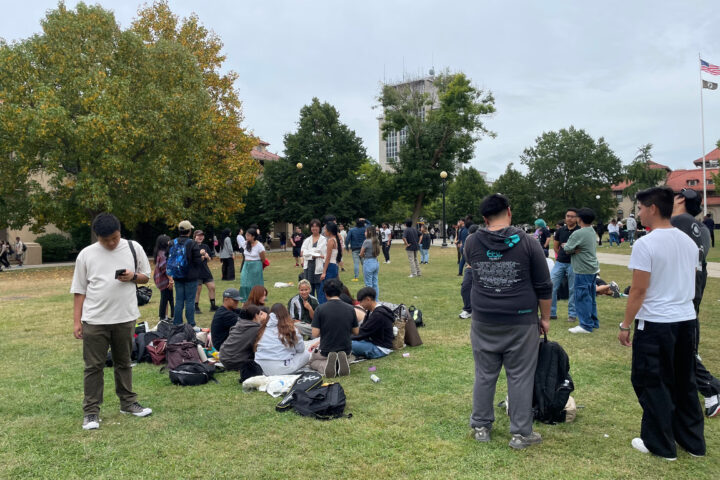Colum McCann began his time on stage as part of the Evening Reading Series on Sept. 24, by complimenting the success and writers connected to the series, explaining that he is proud to be a part of the CUNY system as a professor at Hunter College.
When reading excerpts from his latest novel, TransAtlantic, the crowd listened with quietly and intensely. Occasionally, there was a gasp and murmuring in the crowd when he read a particularly shocking or poignant section of the text.
More often, however, the audience laughed at his many jokes and personal anecdotes, due to his lively and friendly personality.
In TransAtlantic, McCann writes from the perspective of four different people from different time periods that have embarked on their own respective journeys across the Atlantic Ocean.
Each storyline is detailed and intricate, giving the reader a true sense of each character’s perspective and experience.
McCann describes this style of storytelling as “kaleidoscopic” and likes using a “multiplicity of viewpoints” because it reflects the complexity of life.
McCann does not shy away from sensitive topics in his most recent novel and addresses them honestly and sincerely.
When asked about how he approached topics such as religious struggles in Ireland, the potato famine and war with England, he explained that in his profession, writing about delicate, emotionally charged topics is “what you have to do.”
At the end of the evening, when an audience member praised McCann’s ability to give a voice to the downtrodden and meek, McCann responded by saying that very often the stories of the “supposedly anonymous” are more profound than those who have the ability to share their stories with the world.
In TransAtlantic, McCann told the stories of some historical figures such as Fredrick Douglass. Using historical fact when writing about nonfictional people, he said he feels it’s important to be “true to the texture of the experience” and that a writer’s “job is to get general texture correct so people can feel it.” In relation to this, he said that writers have to “be as honest as possible to the human experience.”
While TransAtlantic technically deals with both fictional and nonfictional characters, to McCann there is no distinction between writing for one or the other. “Imagined characters are as real as actual people,” he said. He feels the same amount of responsibility to each of them.
McCann’s reading and interview with Leonard Lopate provided audience members with an evening of interesting, thought-provoking conversation with many laughs along the way.
For more information on the Evening Reading Series visit: www.qcreadings.org.













